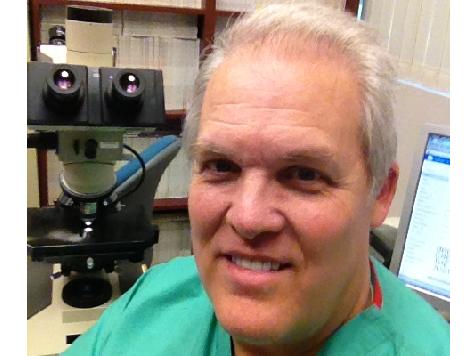
Dr. Jack Chaffin, Jr., an evangelical Christian who enthusiastically attended several Willow Creek Community Church Leadership Summits during the 1990s and early 2000s, told Breitbart News on Wednesday that around 2005 the well respected mega-church changed its focus from evangelical outreach to social justice and political activism.
Chaffin’s views first came to public awareness when he posted a comment on an article last week at Breitbart, “Evangelical Leader Gives Voice to Pro-Immigration Soros Group.” In his comment, Chaffin described his disappointment in the changes at Willow Creek that took place after 2005:
How disappointing. The Willow Creek Church was at the forefront of the “Seeker Church” movement – the idea that Churches exist to preach Jesus Christ, and that it should use whatever reaches the unchurched. It did great work in the 80s, 90s, and early 2000s. I have been there many times at their Leadership Summit, which was nothing less than breathtaking.
I saw Bill Hybels interview Bill Clinton at one of those, and it wasn’t a softball interview – it required major public accountability by Clinton, even though that aspect of the interview wasn’t covered by the MSM. I have benefitted from Willow Creek greatly.
That being said, it was apparent that, when the “changes and realizations” Mrs Hybels describes started occurring at the Willow Creek Church, it was not just reaching out to non-whites spiritually, but it was not keeping itself separate from the politics involved. It had always been pretty careful not to take sides politically, stating that that was not its purpose. When Clinton, for example, tried to talk politics, Bill Hybels interrupted him and kept him from that aspect of what he wanted to say.
But since the mid 2000, I have observed that the “social gospel” (another way of saying church-sponsored welfarism, leftism, and progressivism) began creeping into Willow Creek. I became less blessed by attending events that were great in the past, and could see diversions into politics, and I stopped attending their training events.
And now Mrs. Hybels gets into this. How disappointing, indeed.
On Wednesday, Breitbart News spoke with Dr. Chaffin, a medical doctor in Boise, Idaho. “I had been to Willow Creek for at least five or six Leadership Summits. I started going in 1997. It was the first time I ever heard the music of Darlene Zschech. She was the worship leader of the Hillsongs Church in Sidney, Australia, famous for her song, ‘Shout to the Lord’ and many others, and the real person behind the Hillsongs music brand of praise and worship music.”
Chaffin was profoundly influenced by the praise and worship music he heard at that 1997 Leadership Summit. “It was so awesome. 5,000 or so people. It was an incredibly moving experience. They had leadership training conferences on small groups. It was unbelievable stuff.”
But, Chaffin noted, “I started seeing them change a bit in the mid 2000s, maybe 2005. You can basically time it to when Bill Hybels realized his church was lily white. They didn’t feel like they had very much diversity. They’ve always had the idea you speak to seekers in the language they understand. Until then, they stayed away from politics. But in 2005 or so that changed.”
For Chaffin, he first noticed the change in Willow Creek’s new and different approach to the use of music in worship. “I think it came with the change in music, in which I believe that they were making an effort to make the service more multicultural. It happened about the time that a book titled ‘Letters Across the Divide’ was published, written by a black intern and a white intern at Willow Creek, in which they were trying to talk about why blacks and whites were so divided. I didn’t have a problem with reaching out, but it really bothered me the music changed from participatory praise and worship to performance.”
According to Chaffin, Willow Creek changed more than its approach to music. “My wife and I have led small groups in several churches and we’ve relied upon the Willow Creek model of small group leadership. I stopped going to Willow Creek leadership summits in 2009. I went to the Willow Creek Leadership Summits because I’m an artist and small group person. I went there to be trained on how to reach unchurched through music and small groups. I’m a singer and play bass guitar.”
But Chaffin found the change left him wondering what happened to Willow Creek’s original mission. “The music became not only hard to sing but hard to listen to. It was not music that regular people could sing. I also noticed the message going more toward social justice issues rather than Christ and outreach issues.”
Chaffin reached out to Willow Creek Community Church co-founder Bill Hybels for an explanation. “I sent an email letter to Bill Hybels about my concerns in 2009 I never got a response from him. My question to him was what is Willow Creek doing? Can you square this new approach –the beginnings of social gospel –with your previous focus?”
Chaffin ended the interview with these comments the changes at Willow Creek. “I’ve often heard Bill Hybels say that the Willow Creek Church had ‘white-hot intensity for evangelism’, and often heard him say that nothing should get in the way of the mission of ‘turning irreligious people into fully-devoted followers of Jesus Christ’. The focus seemed to change from ‘are irreligious people attending?’ to ‘are we having more people of other races attending?’.”
That change, says Chaffin, “was a loss of focus.”

COMMENTS
Please let us know if you're having issues with commenting.